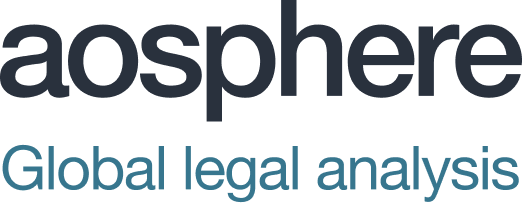During 2024, Rulefinder Shareholding Disclosure has seen a variety of developments taking place in the APAC region as regulators strengthen their regulatory powers and revise their rulebooks to increase transparency of ownership. It serves as a reminder that long-standing disclosure rules continue to evolve as governments and regulators react to market events or disclosure developments in other jurisdictions.
In our Region in focus, we discuss developments in:
-
Australia
-
Japan
-
South Korea; and
-
Taiwan
Australia
The Treasury opened a consultation aimed at increasing the disclosure of ownership information for listed companies.
Key items for consideration are:
- the inclusion of cash-settled interests in the statutory Corporations Act regime. Such interests are currently disclosable under the non-statutory Panel regime to avoid the prospect of intervention from the Takeovers Panel. However, the proposed change to the Corporations Act will operate more broadly to cover market disclosures beyond the remit of the Takeovers Panel’s guidance;
- expansion of the scope of issuers to include foreign issuers listed in Australia. Currently, the rules require disclosure of shareholdings in Australian issuers only;
- there is a proposed carve-out for foreign holders of interests in an Australian-listed entity who are subject to equivalent supervision. This is to prevent duplication of reporting requirements; and
- interests arising under equity derivatives will also come within the scope of the beneficial ownership tracing notice provisions in the Corporations Act, which allows issuers to send notices to investors with requests for information on their holdings.
A summary table of how relevant interests would change is available here. The consultation period closed on 13 December 2024.
How does this compare to other worldwide regimes?
In Hong Kong and in most of Europe the substantial shareholding rules extend their regimes to foreign issuers and catch a wide range of economic and indirect interests in shares, such as interests arising through cash-settled equity derivatives. Differences remain between what constitutes an “economic interest”, and the specific national rules should be consulted in each case.
Japan
In 2023, the FSA established a Working Group on the Tender Offer Rule and Large Shareholding Reporting Rules. Over the course of its analysis, the Working Group made several recommendations to change the existing substantial shareholding rules, in particular to promote effective engagement between issuers and investors.
The recommendations were accepted as amendments to the principal shareholding disclosure legislation - the Financial Instruments and Exchange Act (FIEA) - but secondary implementing regulations that would provide key details are outstanding.
Principally, the large shareholding rules will change to:
- exempt certain parties from aggregating as joint holders acting in concert, subject to conditions; and
- acknowledge situations where holdings of cash-settled securities may form part of the disclosure threshold. The principle that facts such as control or access to voting rights should be considered exists under current rules, but the new rules are expected to be more specific about the treatment of equity derivative transactions and related purposes.
The Amendments will be effective within two years from the date of their announcement so are expected to come into effect before May 2026. Secondary legislation will be released in due course.
How does this compare to other worldwide regimes?
Aggregation of concert parties’ interests is common in many jurisdictions across the world and it is currently a point of aggregation under Japan’s existing rules. The changes proposed by the Working Group accommodate shareholder engagement principles, assuming ad hoc and not ongoing agreements, and certain other regulators have also taken similar public positions. For example, BaFiN in Germany and the FCA in the United Kingdom both discuss the role of stewardship and collaborative engagement in large holdings aggregation and both point to the importance of the facts when considering individual or ad-hoc collaborations.
South Korea
Since 2023, the FSC and FSS have been working on reform of short selling practices on Korean markets. There has been a general ban on covered short selling (subject to some exemptions like liquidity provision and market making) since November 2023, which is due to be lifted on 30 March 2025.
Naked short selling is not a permitted practice in any event. Since the end of 2023, the FSC and the KRX have consulted on and announced various reforms of the short-selling market in readiness for the lifting of the ban and many of those have been legislated for.
Key reforms include:
- the establishment of internal short-selling controls and inventory management that investors must build into their internal systems, designed to prevent naked short selling. There are two sets of guidelines for parties intending to short sell and also for non-exempt parties holding a de minimis short position at any point, even for one day, since 1 January 2023;
- a wide suite of much stronger sanctions tools including criminal penalties and administrative sanctions;
- a restricted stock repayment period for institutional investors at a maximum of 12 months with 90-day extensions;
- restrictions on acquiring convertible bonds (CB) or bonds with warrants (BW) of a company if they engaged in short sale of stocks after the company disclosed its CB or BW issuance plan but prior to the announcement of its issue price;
- the disclosure threshold for public reporting has now been reduced to the lower private reporting threshold, so no private reporting mechanism exists. Now the only net short position disclosure threshold is either (a) 0.01% or more of the total issued shares with market value over KRW 100 million; or (b) market value of KRW1 billion or more.
South Korea’s short selling changes are readying the market for the general short selling ban to be lifted in March 2025 and as we can see from the regulator’s position, there will be zero tolerance for non-compliance.
How does this compare to other worldwide regimes?
All EEA member states and the UK have net short position reporting regimes. So do certain APAC jurisdictions, namely Australia, Japan, Hong Kong, South Korea and Singapore. Japan and the EU/UK operate different thresholds for private reporting positions and positions that will be made public. Public disclosures in these worldwide countries currently include the names of the investors. However, future UK short selling reforms will require the FCA to publish anonymised aggregated net short positions based on all individual position notifications it receives. Aggregated and anonymised positions are published in Singapore, Hong Kong and Australia; these jurisdictions do not have dual private/public threshold reporting.
Taiwan
On 10 May 2024, the starting threshold for substantial shareholding disclosures was lowered from 10% to 5%.
Alongside this disclosure threshold change, the rules also changed the way the substantial shareholding disclosure submissions are made. For investors that are Taiwanese listed public companies, disclosure is made directly via the regulator’s online portal. For other shareholders, the filings are made via the issuer, so lines for communication with the issuer must be put in place in order to fulfil these obligations.
How does this compare to other worldwide regimes?
5% is a very common initial threshold for substantial shareholding disclosure. Switzerland recently opened a consultation to increase its starting threshold from 3% to 5% in what it described as a need for alignment with international standards. 5% may be common but we note that it is not always uniformly applied. Some countries start at 5% but then impose special, lower thresholds for domestic issuers or for shareholders resident in specific countries. There are currently around 13 jurisdictions that require major shareholders to disclose holdings of less than 5%. And additional disclosure at lower thresholds may also be required to fulfil industry-specific or takeover disclosures. The key takeaway for disclosure thresholds is one size does not fit all.
Conclusion
APAC regulators have been particularly active during 2024 and these reforms have, or will have, significant impact on shareholding disclosure calculations. As monitoring and reporting systems are updated to reflect lower thresholds, more issuers in-scope or inclusion of additional instruments this will lead to more disclosures. National complexity remains an issue as there is no single rulebook for shareholder disclosure calculations. For example, for Australia and Japan, their inclusion or recognition of cash-settled interests in major holdings will require fact-based analysis and parameters informed by the specific national legal rules underpinning them. We note that these two jurisdictions have approached this issue differently.
Cash-settled analysis aside, the calculation basis for disclosure thresholds remains diverse even down to what are you disclosing - e.g. voting rights / share capital – in each jurisdiction. This diversity applies APAC-wide and worldwide and in each, separate, regulatory area of shareholding disclosure.
Need help navigating shareholding disclosure rules?
400+ financial institutions depend on our global analysis of reporting obligations





